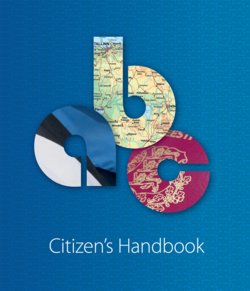Читать книгу Citizen’s Handbook - Mart Jagomägi - Страница 13
На сайте Литреса книга снята с продажи.
THE COURTS
ОглавлениеJudicial power is exercised and justice administered solely by the courts. In certain matters, the function of administering justice is also performed by other bodies established for that purpose. For example, in case of misdemeanours punishable by a fine, state or local government officials have the right of making the respective decision. Labour dispute committees have been established for solving individual labour disputes, and the Industrial Property Committee has been established for solving disputes related to intellectual property. These administrative bodies perform the functions of administering justice but are not included under the court system. Also, the courts of honour of professional associations are not a part of the court system of the State.
Estonian citizens and non-citizens are entitled to have recourse to the courts if their rights or freedoms are violated or if disputes with another person or body need to be resolved. Officials’ decisions can also be contested in courts.
The courts are independent in discharging their duties and administering justice in accordance with the Constitution and the laws. Judicial power has been separated from other powers and their sphere of influence. In order to ensure rights and freedoms, it is important that the judge does not obey the will of the executing power or an individual person in making of the decision, but instead obeys only the law that is applied the same way to all citizens.
Court system
Estonia has a three-level court system. The system consists of the following:
• county courts and administrative courts
• district courts
• the Supreme Court
All court cases begin in a court of first instance. A party to a proceeding can appeal twice to a court of higher instance: an appeal to a district court on a ruling of the court of first instance and an appeal to the Supreme Court on a ruling of the court of second instance.
A county court hears civil, criminal and misdemeanour matters as a court of first instance.
Administrative courts are courts of first instance, the competence of which includes public law disputes (e.g. between an individual and the state or an individual and a local government).
A circuit court is the court of appeal which only reviews the decisions of county and administrative courts.
The Supreme Court is the highest court in Estonia that reviews decisions by way of cassation proceedings. The Supreme Court is also the constitutional review court.
The creation of extraordinary courts is prohibited.
Criminal charges may be brought against the Chief Justice and justices of the Supreme Court only on a proposal of the Chancellor of Justice, and with the consent of a majority of the members of the Riigikogu.
Land registry departments, registration departments and probation supervision departments are also associated with courts. Land Registry Departments maintain a land register and marital property register, Registration Departments maintain a commercial register, non-profit associations and foundations register, commercial pledge register and ship register. The objective of probation supervision departments is supervision over probationers and facilitating the return of former imprisoned persons into society.
